中共中央关于党的百年奋斗重大成就和历史经验的决议(双语全文)
新华网 2021-11-18 09:20

二、完成社会主义革命和推进社会主义建设
II. Socialist Revolution and Construction
社会主义革命和建设时期,党面临的主要任务是,实现从新民主主义到社会主义的转变,进行社会主义革命,推进社会主义建设,为实现中华民族伟大复兴奠定根本政治前提和制度基础。
In the period of socialist revolution and construction, the main tasks of the Party were to realize the transformation from new democracy to socialism, carry out socialist revolution, promote socialist construction, and lay down the fundamental political conditions and the institutional foundations necessary for national rejuvenation.
新中国成立后,党领导人民战胜政治、经济、军事等方面一系列严峻挑战,肃清国民党反动派残余武装力量和土匪,和平解放西藏,实现祖国大陆完全统一;稳定物价,统一财经工作,完成土地改革,进行社会各方面民主改革,实行男女权利平等,镇压反革命,开展“三反”、“五反”运动,荡涤旧社会留下的污泥浊水,社会面貌焕然一新。中国人民志愿军雄赳赳、气昂昂跨过鸭绿江,同朝鲜人民和军队并肩战斗,战胜武装到牙齿的强敌,打出了国威军威,打出了中国人民的精气神,赢得抗美援朝战争伟大胜利,捍卫了新中国安全,彰显了新中国大国地位。新中国在错综复杂的国内国际环境中站稳了脚跟。
After the founding of the People’s Republic, the Party led the people in surmounting a multitude of political, economic, and military challenges. It cleared out bandits and remnant KMT reactionary forces, peacefully liberated Tibet, and unified the entire mainland. It stabilized prices, unified standards for finances and the economy, completed the agrarian reform, and launched democratic reforms in all sectors of society. It introduced the policy of equal rights for men and women, suppressed counter-revolutionaries, and launched movements against the “three evils” of corruption, waste, and bureaucracy and against the “five evils” of bribery, tax evasion, theft of state property, cheating on government contracts, and stealing of economic information. As the stains of the old society were wiped out, China took on a completely new look.
Meanwhile, the Chinese People’s Volunteers marched valiantly across the Yalu River to fight alongside the Korean people and troops. They ultimately defeated a powerful enemy that was armed to the teeth, demonstrating the gallantry of our army and our country, and the unyielding spirit of our people. China’s resounding victory in the War to Resist US Aggression and Aid Korea safeguarded the security of the nascent People’s Republic, and testified to its status as a major country. The new China thus gained a firm foothold amid complex domestic and international environments.
党领导建立和巩固工人阶级领导的、以工农联盟为基础的人民民主专政的国家政权,为国家迅速发展创造了条件。一九四九年,中国人民政治协商会议第一届全体会议制定《中国人民政治协商会议共同纲领》。一九五三年,党正式提出过渡时期的总路线,即在一个相当长的时期内,逐步实现国家的社会主义工业化,并逐步实现国家对农业、手工业和资本主义工商业的社会主义改造。一九五四年,召开第一届全国人民代表大会第一次会议,通过了《中华人民共和国宪法》。一九五六年,我国基本上完成对生产资料私有制的社会主义改造,基本上实现生产资料公有制和按劳分配,建立起社会主义经济制度。党领导确立人民代表大会制度、中国共产党领导的多党合作和政治协商制度、民族区域自治制度,为人民当家作主提供了制度保证。党领导实现和巩固了全国各族人民的大团结,形成和发展各民族平等互助的社会主义民族关系,实现和巩固全国工人、农民、知识分子和其他各阶层人民的大团结,加强和扩大了广泛统一战线。社会主义制度的建立,为我国一切进步和发展奠定了重要基础。
Under the Party’s leadership, a government of people’s democratic dictatorship was established and consolidated, which was led by the working class and based on an alliance of workers and peasants. This created the conditions necessary for the country’s rapid development.
In 1949, the Common Program of the Chinese People’s Political Consultative Conference (CPPCC) was passed at the CPPCC’s first plenary session. In 1953, the Party officially set forth the general line for the transition period, namely gradually realizing the country’s socialist industrialization and socialist transformation of agriculture, handicrafts, and capitalist industry and commerce over a fairly long period of time. In 1954, the Constitution of the People’s Republic of China was adopted at the first session of the First National People’s Congress. In 1956, China basically completed the socialist transformation of private ownership of the means of production, and put into practice public ownership of the means of production and distribution according to work, thus marking the establishment of the socialist economic system.
Under the Party’s leadership, China established the system of people’s congresses, the system of CPC-led multiparty cooperation and political consultation, and the system of regional ethnic autonomy, providing institutional guarantees for ensuring that it is the people who run the country. Under the Party’s leadership, China also forged and strengthened unity among people of all ethnic groups, established and developed socialist ethnic relations based on equality and mutual assistance, and achieved and cemented unity between workers, peasants, intellectuals, and people from other social strata across the country. As a result, a broad united front was consolidated and expanded. The establishment of the socialist system laid the foundation for all of China’s subsequent progress and development.
党的八大根据我国社会主义改造基本完成后的形势,提出国内主要矛盾已经不再是工人阶级和资产阶级的矛盾,而是人民对于经济文化迅速发展的需要同当前经济文化不能满足人民需要的状况之间的矛盾,全国人民的主要任务是集中力量发展社会生产力,实现国家工业化,逐步满足人民日益增长的物质和文化需要。党提出努力把我国逐步建设成为一个具有现代农业、现代工业、现代国防和现代科学技术的社会主义强国,领导人民开展全面的大规模的社会主义建设。经过实施几个五年计划,我国建立起独立的比较完整的工业体系和国民经济体系,农业生产条件显著改变,教育、科学、文化、卫生、体育事业有很大发展。“两弹一星”等国防尖端科技不断取得突破,国防工业从无到有逐步发展起来。人民解放军得到壮大和提高,由单一的陆军发展成为包括海军、空军和其他技术兵种在内的合成军队,为巩固新生人民政权、确立中国大国地位、维护中华民族尊严提供了坚强后盾。
In light of the domestic situation following socialist transformation, the Party propounded at its Eighth National Congress that the main contradiction in China was no longer the contradiction between the working class and the bourgeoisie, but rather that between the demand of the people for rapid economic and cultural development and the reality that the country’s economy and culture fell short of the needs of the people. Therefore, the major task facing the nation was to concentrate on developing the productive forces and realize industrialization in order to gradually meet the people’s growing material and cultural needs. The Party called on the people to redouble their efforts to build China step by step into a strong socialist country with modern agriculture, industry, national defense, and science and technology, and it led them in carrying out large-scale socialist construction across the board.
Through the execution of several five-year plans, an independent and relatively complete industrial system and national economic framework were established, the conditions of agricultural production were markedly improved, and impressive progress was made in social programs such as education, science, culture, health, and sports. With continuous breakthroughs in cutting-edge technologies, including nuclear weapons, missiles, and satellites, China’s defense industries underwent steady growth after starting from scratch. The People’s Liberation Army continued to grow in strength, expanding from ground forces alone into a composite military force comprised of the navy, air force, and other specialized units. This provided firm support for the People’s Republic to consolidate the newborn people’s government, establish China’s position as a major country, and defend the nation’s dignity.
党坚持独立自主的和平外交政策,倡导和坚持和平共处五项原则,坚定维护国家独立、主权、尊严,支持和援助世界被压迫民族解放事业、新独立国家建设事业和各国人民正义斗争,反对帝国主义、霸权主义、殖民主义、种族主义,彻底结束了旧中国的屈辱外交。党审时度势调整外交战略,推动恢复我国在联合国的一切合法权利,打开对外工作新局面,推动形成国际社会坚持一个中国原则的格局。党提出划分三个世界的战略,作出中国永远不称霸的庄严承诺,赢得国际社会特别是广大发展中国家尊重和赞誉。
The Party adhered to an independent foreign policy of peace, championed and upheld the Five Principles of Peaceful Coexistence, and firmly defended China’s independence, sovereignty, and dignity. It provided support and assistance for other oppressed nations in seeking liberation, for newly independent countries in their pursuit of development, and for various peoples as they put up just struggles, and stood opposed to imperialism, hegemonism, colonialism, and racism. The humiliating diplomacy of the old China was put to an end.
The Party adjusted its diplomatic strategies in light of evolving circumstances, worked to restore all lawful rights of the People’s Republic of China in the United Nations, opened up new horizons for China’s diplomacy, and fostered commitment to the one-China principle among the international community. The Party put forward the theory of the differentiation of the three worlds and made the promise that China would never seek hegemony, earning respect and acclaim from the international community and developing countries in particular.
党充分预见到在全国执政面临的新挑战,早在解放战争取得全国胜利前夕召开的党的七届二中全会就向全党提出,务必继续保持谦虚、谨慎、不骄、不躁的作风,务必继续保持艰苦奋斗的作风。新中国成立后,党着重提出执政条件下党的建设的重大课题,从思想上组织上作风上加强党的建设、巩固党的领导。党加强干部理论学习和知识培训,提高党的领导水平,要求全党特别是党的高级干部增强维护党的团结统一的自觉性。党开展整风整党,加强党内教育,整顿基层党组织,提高党员条件,反对官僚主义、命令主义和贪污浪费。党高度警惕并着力防范党员干部腐化变质,坚决惩治腐败。这些重要举措,增强了党的纯洁性和全党的团结,密切了党同人民群众的联系,积累了执政党建设的初步经验。
The Party fully foresaw the new challenges it would face after assuming power over the whole country. As early as at the second plenary session of its Seventh Central Committee which was held shortly before nationwide victory was attained in the War of Liberation, the Party called on all members to remain modest, prudent, and free from arrogance and rashness in their work, and to preserve the style of plain living and hard struggle. After the founding of the People’s Republic, the Party focused on the major issue of Party building in the context of governing, and worked to strengthen the Party and consolidate Party leadership ideologically, organizationally, and in terms of conduct. The Party bolstered efforts to encourage officials to study theory and increase their knowledge, improved its capacity for exercising leadership, and demanded that all members, especially high-ranking officials, act with a greater sense of purpose to safeguard Party unity and solidarity. Rectification campaigns were carried out throughout the Party to strengthen education within the Party, consolidate primary-level organizations, raise membership requirements, and oppose bureaucratism, commandism, graft, and waste. The Party was on high alert against corruption, worked hard to prevent degeneracy among officials, and responded to corruption with firm punishment. These important measures strengthened the integrity of the Party and the solidarity of all Party members, built closer ties between the Party and the people, and accumulated essential starting experience for building a governing party.
在这个时期,毛泽东同志提出把马克思列宁主义基本原理同中国具体实际进行“第二次结合”,以毛泽东同志为主要代表的中国共产党人,结合新的实际丰富和发展毛泽东思想,提出关于社会主义建设的一系列重要思想,包括社会主义社会是一个很长的历史阶段,严格区分和正确处理敌我矛盾和人民内部矛盾,正确处理我国社会主义建设的十大关系,走出一条适合我国国情的工业化道路,尊重价值规律,在党与民主党派的关系上实行“长期共存、互相监督”的方针,在科学文化工作中实行“百花齐放、百家争鸣”的方针等。这些独创性理论成果至今仍有重要指导意义。
During this period, Comrade Mao Zedong proposed a second round of efforts to integrate the basic tenets of Marxism-Leninism with China’s realities. Chinese communists, with Comrade Mao Zedong as their chief representative, enriched and developed Mao Zedong Thought by taking stock of new realities, and put forward a series of important theories for socialist construction. These included recognizing that socialist society was a long historical period; strictly differentiating between two types of contradictions, namely those between the people and the enemy and those among the people, and properly dealing with these contradictions; handling the ten major relationships in China’s socialist construction appropriately; finding a path to industrialization suited to China’s realities; respecting the law of value; implementing the principle of long-term coexistence and mutual oversight between the Communist Party and other political parties; and applying the principle of letting a hundred flowers blossom and a hundred schools of thought contend to scientific and cultural work. These creative theoretical achievements maintain important guiding significance to this day.
毛泽东思想是马克思列宁主义在中国的创造性运用和发展,是被实践证明了的关于中国革命和建设的正确的理论原则和经验总结,是马克思主义中国化的第一次历史性飞跃。毛泽东思想的活的灵魂是贯穿于各个组成部分的立场、观点、方法,体现为实事求是、群众路线、独立自主三个基本方面,为党和人民事业发展提供了科学指引。
Mao Zedong Thought represents a creative application and advancement of Marxism-Leninism in China. It is a summation of theories, principles, and experience on China’s revolution and construction that has been proven correct through practice, and its establishment marked the first historic step in adapting Marxism to the Chinese context. The living soul of Mao Zedong Thought is the positions, viewpoints, and methods embodied in its constituent parts, which are reflected in three basic points—seeking truth from facts, following the mass line, and staying independent. These have provided sound guidance for developing the cause of the Party and the people.
遗憾的是,党的八大形成的正确路线未能完全坚持下去,先后出现“大跃进”运动、人民公社化运动等错误,反右派斗争也被严重扩大化。面对当时严峻复杂的外部环境,党极为关注社会主义政权巩固,为此进行了多方面努力。然而,毛泽东同志在关于社会主义社会阶级斗争的理论和实践上的错误发展得越来越严重,党中央未能及时纠正这些错误。毛泽东同志对当时我国阶级形势以及党和国家政治状况作出完全错误的估计,发动和领导了“文化大革命”,林彪、江青两个反革命集团利用毛泽东同志的错误,进行了大量祸国殃民的罪恶活动,酿成十年内乱,使党、国家、人民遭到新中国成立以来最严重的挫折和损失,教训极其惨痛。一九七六年十月,中央政治局执行党和人民的意志,毅然粉碎了“四人帮”,结束了“文化大革命”这场灾难。
Regrettably, the correct line adopted at the Party’s Eighth National Congress was not fully upheld. Mistakes were made such as the Great Leap Forward and the people’s commune movement, and the scope of the struggle against Rightists was also made far too broad. Confronted with a grave and complex external environment at the time, the Party was extremely concerned about consolidating China’s socialist state power, and made a wide range of efforts in this regard. However, Comrade Mao Zedong’s theoretical and practical errors concerning class struggle in a socialist society became increasingly serious, and the Central Committee failed to rectify these mistakes in good time. Under a completely erroneous appraisal of the prevailing class relations and the political situation in the Party and the country, Comrade Mao Zedong launched and led the Cultural Revolution. The counter-revolutionary cliques of Lin Biao and Jiang Qing took advantage of Comrade Mao Zedong’s mistakes, and committed many crimes that brought disaster to the country and the people, resulting in ten years of domestic turmoil which caused the Party, the country, and the people to suffer the most serious losses and setbacks since the founding of the People’s Republic. This was an extremely bitter lesson. Acting on the will of the Party and the people, the Political Bureau of the Central Committee resolutely smashed the Gang of Four in October 1976, putting an end to the catastrophic Cultural Revolution.
从新中国成立到改革开放前夕,党领导人民完成社会主义革命,消灭一切剥削制度,实现了中华民族有史以来最为广泛而深刻的社会变革,实现了一穷二白、人口众多的东方大国大步迈进社会主义社会的伟大飞跃。在探索过程中,虽然经历了严重曲折,但党在社会主义革命和建设中取得的独创性理论成果和巨大成就,为在新的历史时期开创中国特色社会主义提供了宝贵经验、理论准备、物质基础。
From the founding of the People’s Republic to the eve of reform and opening up, the Party led the people in completing the socialist revolution, eliminating all systems of exploitation, and bringing about the most extensive and profound social change in the history of the Chinese nation and a great transformation from a poor and backward Eastern country with a large population to a socialist country. Despite the serious setbacks it encountered in the process of exploration, the Party made creative theoretical achievements and great progress in socialist revolution and construction, which provided valuable experience, theoretical preparation, and material foundations for launching socialism with Chinese characteristics into a new historical period.
中国共产党和中国人民以英勇顽强的奋斗向世界庄严宣告,中国人民不但善于破坏一个旧世界、也善于建设一个新世界,只有社会主义才能救中国,只有社会主义才能发展中国。
Through tenacious struggle, the Party and the people showed the world that the Chinese people were not only capable of dismantling the old world, but also of building a new one, that only socialism could save China, and that only socialism could develop China.









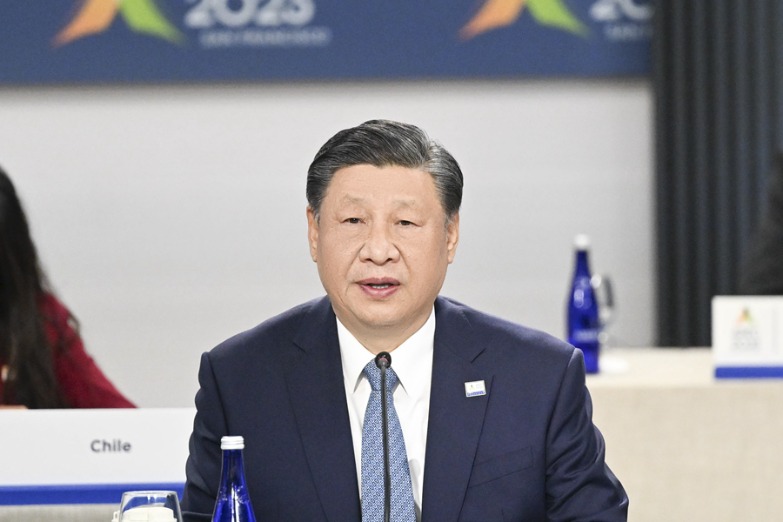
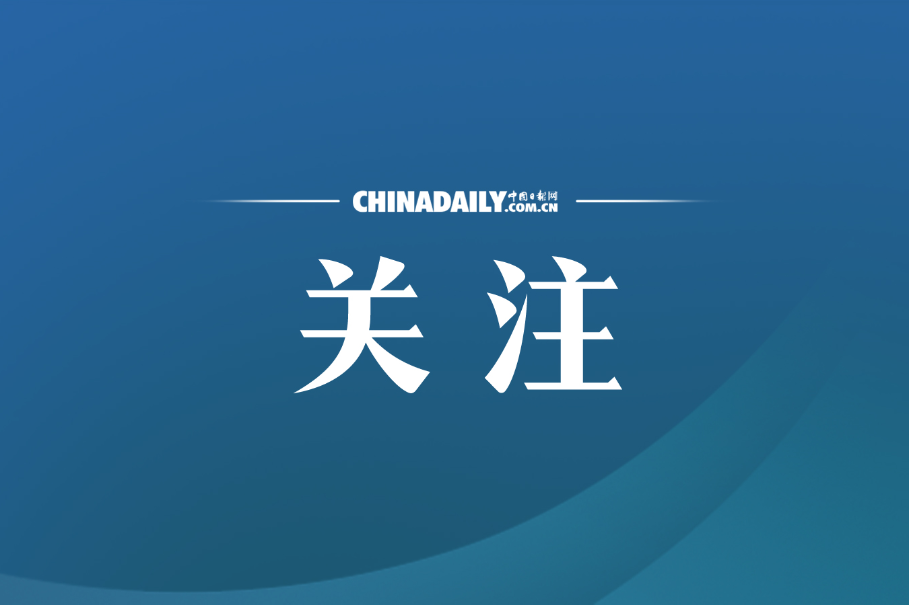
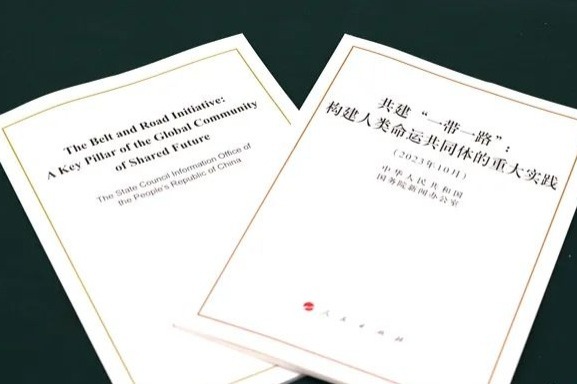
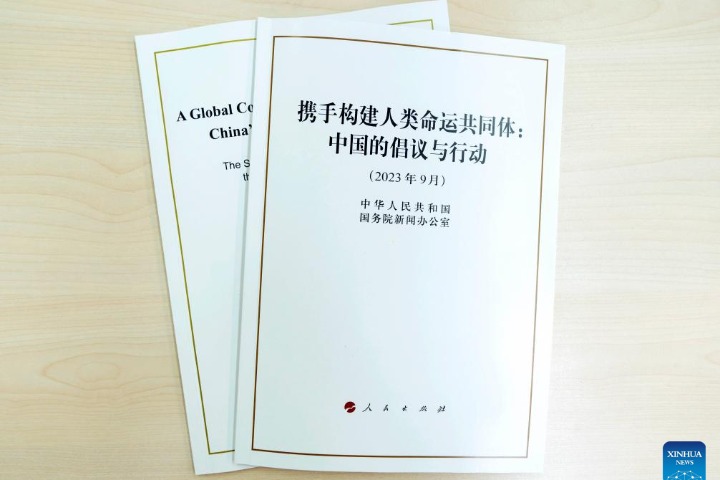
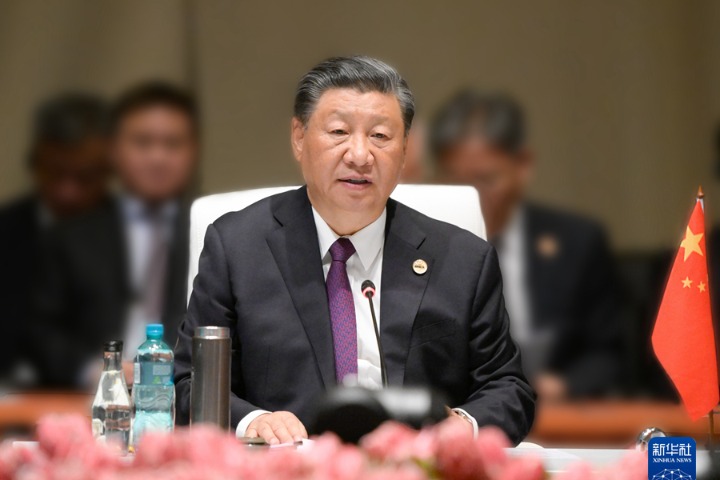



 英语点津微信
英语点津微信 双语小程序
双语小程序